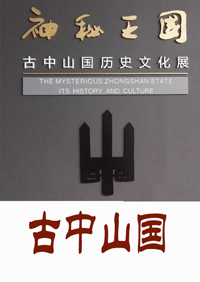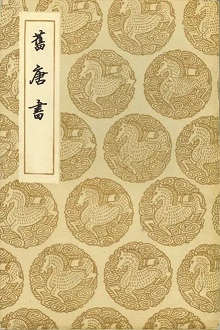It was now exactly seven months since the balloon voyagers had been thrown on Lincoln Island. During that time, notwithstanding the researches they had made, no human being had been discovered. No smoke even had betrayed the presence of man on the surface of the island. No vestiges1 of his handiwork showed that either at an early or at a late period had man lived there. Not only did it now appear to be uninhabited by any but themselves, but the colonists2 were compelled to believe that it never had been inhabited. And now, all this scaffolding of reasonings fell before a simple ball of metal, found in the body of an inoffensive rodent3! In fact, this bullet must have issued from a firearm, and who but a human being could have used such a weapon?
When Pencroft had placed the bullet on the table, his companions looked at it with intense astonishment4. All the consequences likely to result from this incident, notwithstanding its apparent insignificance6, immediately took possession of their minds. The sudden apparition7 of a supernatural being could not have startled them more completely.
Cyrus Harding did not hesitate to give utterance8 to the suggestions which this fact, at once surprising and unexpected, could not fail to raise in his mind. He took the bullet, turned it over and over, rolled it between his finger and thumb; then, turning to Pencroft, he asked,--
Are you sure that the peccary wounded by this bullet was not more than three months old?"
"Not more, captain," replied Pencroft. "It was still sucking its mother when I found it in the trap."
"Well," said the engineer, "that proves that within three months a gun- shot was fired in Lincoln Island."
"And that a bullet," added Gideon Spilett, "wounded, though not mortally, this little animal."
"That is unquestionable," said Cyrus Harding, "and these are the deductions9 which must be drawn10 from this incident: that the island was inhabited before our arrival, or that men have landed here within three months. Did these men arrive here voluntarily or involuntarily, by disembarking on the shore or by being wrecked11? This point can only be cleared up later. As to what they were, Europeans or Malays, enemies or friends of our race, we cannot possibly guess; and if they still inhabit the island, or if they have left it, we know not. But these questions are of too much importance to be allowed to remain long unsettled."
"No! a hundred times no! a thousand times no!" cried the sailor, springing up from the table. "There are no other men than ourselves on Lincoln Island! By my faith! The island isn't large and if it had been inhabited, we should have seen some of the inhabitants long before this!"
"In fact, the contrary would be very astonishing," said Herbert.
"But it would be much more astonishing, I should think, observed the reporter, "if this peccary had been born with a bullet in its inside!"
"At least," said Neb seriously, "if Pencroft has not had--"
"Look here, Neb," burst out Pencroft. "Do you think I could have a bullet in my jaw12 for five or six months without finding it out? Where could it be hidden?" he asked, opening his mouth to show the two-and-thirty teeth with which it was furnished. "Look well, Neb, and if you find one hollow tooth in this set, I will let you pull out half a dozen!"
"Neb's supposition is certainly inadmissible," replied Harding, who, notwithstanding the gravity of his thoughts, could not restrain a smile. "It is certain that a gun has been fired in the island, within three months at most. But I am inclined to think that the people who landed on this coast were only here a very short time ago, or that they just touched here; for if, when we surveyed the island from the summit of Mount Franklin, it had been inhabited, we should have seen them or we should have been seen ourselves. It is therefore, probable that within only a few weeks castaways have been thrown by a storm on some part of the coast. However that may be, it is of consequence to us to have this point settled."
"I think that we should act with caution," said the reporter.
"Such is my advice," replied Cyrus Harding, "for it is to be feared that Malay pirates have landed on the island!"
"Captain," asked the sailor, "would it not be a good plan, before setting out, to build a canoe in which we could either ascend13 the river, or, if we liked, coast round the inland? It will not do to be unprovided."
"Your idea is good, Pencroft," replied the engineer, "but we cannot wait for that. It would take at least a month to build a boat."
"Yes, a real boat," replied the sailor; "but we do not want one for a sea voyage, and in five days at the most, I will undertake to construct a canoe fit to navigate14 the Mercy."
"Five days," cried Neb, "to build a boat?"
"Yes, Neb; a boat in the Indian fashion."
"Of wood?" asked the Negro, looking still unconvinced.
"Of wood," replied Pencroft, "of rather of bark. I repeat, captain, that in five days the work will be finished!"
"In five days, then, be it," replied the engineer.
"But till that time we must be very watchful15," said Herbert.
"Very watchful indeed, my friends," replied Harding; "and I beg you to confine your hunting excursions to the neighborhood of Granite16 House."
The dinner ended less gaily17 than Pencroft had hoped.
So, then, the island was, or had been, inhabited by others than the settlers. Proved as it was by the incident of the bullet, it was hereafter an unquestionable fact, and such a discovery could not but cause great uneasiness among the colonists.
Cyrus Harding and Gideon Spilett, before sleeping, conversed18 long about the matter. They asked themselves if by chance this incident might not have some connection with the inexplicable19 way in which the engineer had been saved, and the other peculiar20 circumstances which had struck them at different times. However, Cyrus Harding, after having discussed the pros21 and cons5 of the question, ended by saying,--
"In short, would you like to know my opinion, my dear Spilett?"
"Yes, Cyrus."
"Well, then, it is this: however minutely we explore the island, we shall find nothing."
The next day Pencroft set to work. He did not mean to build a boat with boards and planking, but simply a flat-bottomed canoe, which would be well suited for navigating22 the Mercy--above all, for approaching its source, where the water would naturally be shallow. Pieces of bark, fastened one to the other, would form a light boat; and in case of natural obstacles, which would render a portage necessary, it would be easily carried. Pencroft intended to secure the pieces of bark by means of nails, to insure the canoe being water-tight.
It was first necessary to select the trees which would afford a strong and supple23 bark for the work. Now the last storm had brought down a number of large birch-trees, the bark of which would be perfectly24 suited for their purpose. Some of these trees lay on the ground, and they had only to be barked, which was the most difficult thing of all, owing to the imperfect tools which the settlers possessed25. However, they overcame all difficulties.
While the sailor, seconded by the engineer, thus occupied himself without losing an hour, Gideon Spilett and Herbert were not idle.
They were made purveyors to the colony. The reporter could not but admire the boy, who had acquired great skill in handling the bow and spear. Herbert also showed great courage and much of that presence of mind which may justly be called "the reasoning of bravery." These two companions of the chase, remembering Cyrus Harding's recommendations, did not go beyond a radius26 of two miles round Granite House; but the borders of the forest furnished a sufficient tribute of agoutis, capybaras, kangaroos, peccaries, etc.; and if the result from the traps was less than during the cold, still the warren yielded its accustomed quota27, which might have fed all the colony in Lincoln Island.
Often during these excursions, Herbert talked with Gideon Spilett on the incident of the bullet, and the deductions which the engineer drew from it, and one day--it was the 26th of October--he said--"But, Mr. Spilett, do you not think it very extraordinary that, if any castaways have landed on the island, they have not yet shown themselves near Granite House?"
"Very astonishing if they are still here," replied the reporter, "but not astonishing at all if they are here no longer!"
"So you think that these people have already quitted the island?" returned Herbert.
"It is more than probable, my boy; for if their stay was prolonged, and above all, if they were still here, some accident would have at last betrayed their presence."
"But if they were able to go away," observed the lad, "they could not have been castaways."
"No, Herbert; or, at least, they were what might be called provisional castaways. It is very possible that a storm may have driven them to the island without destroying their vessel28, and that, the storm over, they went away again."
"I must acknowledge one thing," said Herbert, "it is that Captain Harding appears rather to fear than desire the presence of human beings on our island."
"In short," responded the reporter, "there are only Malays who frequent these seas, and those fellows are ruffians which it is best to avoid."
"It is not impossible, Mr. Spilett," said Herbert, "that some day or other we may find traces of their landing."
"I do not say no, my boy. A deserted29 camp, the ashes of a fire, would put us on the track, and this is what we will look for in our next expedition."
The day on which the hunters spoke30 thus, they were in a part of the forest near the Mercy, remarkable31 for its beautiful trees. There, among others, rose, to a height of nearly 200 feet above the ground, some of those superb coniferae, to which, in New Zealand, the natives give the name of Kauris.
"I have an idea, Mr. Spilett," said Herbert. "If I were to climb to the top of one of these kauris, I could survey the country for an immense distance round."
"The idea is good," replied the reporter; "but could you climb to the top of those giants?"
"I can at least try," replied Herbert.
The light and active boy then sprang on the first branches, the arrangement of which made the ascent32 of the kauri easy, and in a few minutes he arrived at the summit, which emerged from the immense plain of verdure.
From this elevated situation his gaze extended over all the southern portion of the island, from Claw Cape33 on the southeast, to Reptile34 End on the southwest. To the northwest rose Mount Franklin, which concealed35 a great part of the horizon.
But Herbert, from the height of his observatory36, could examine all the yet unknown portion of the island, which might have given shelter to the strangers whose presence they suspected.
The lad looked attentively37. There was nothing in sight on the sea, not a sail, neither on the horizon nor near the island. However, as the bank of trees hid the shore, it was possible that a vessel, especially if deprived of her masts, might lie close to the land and thus be invisible to Herbert.
Neither in the forests of the Far West was anything to be seen. The wood formed an impenetrable screen, measuring several square miles, without a break or an opening. It was impossible even to follow the course of the Mercy, or to ascertain39 in what part of the mountain it took its source. Perhaps other creeks40 also ran towards the west, but they could not be seen.
But at last, if all indication of an encampment escaped Herbert's sight could he not even catch a glimpse of smoke, the faintest trace of which would be easily discernible in the pure atmosphere?
For an instant Herbert thought he could perceive a slight smoke in the west, but a more attentive38 examination showed that he was mistaken. He strained his eyes in every direction, and his sight was excellent. No, decidedly there was nothing there.
Herbert descended42 to the foot of the kauri, and the two sportsmen returned to Granite House. There Cyrus Harding listened to the lad's account, shook his head and said nothing. It was very evident that no decided41 opinion could be pronounced on this question until after a complete exploration of the island.
Two days after--the 28th of October--another incident occurred, for which an explanation was again required.
While strolling along the shore about two miles from Granite House, Herbert and Neb were fortunate enough to capture a magnificent specimen43 of the order of chelonia. It was a turtle of the species Midas, the edible44 green turtle, so called from the color both of its shell and fat.
Herbert caught sight of this turtle as it was crawling among the rocks to reach the sea.
"Help, Neb, help!" he cried.
Neb ran up.
"What a fine animal!" said Neb; "but how are we to catch it?"
"Nothing is easier, Neb," replied Herbert. "We have only to turn the turtle on its back, and it cannot possibly get away. Take your spear and do as I do."
The reptile, aware of danger, had retired45 between its carapace46 and plastron. They no longer saw its head or feet, and it was motionless as a rock.
Herbert and Neb then drove their sticks underneath47 the animal, and by their united efforts managed without difficulty to turn it on its back. The turtle, which was three feet in length, would have weighed at least four hundred pounds.
"Capital!" cried Neb; "this is something which will rejoice friend Pencroft's heart."
In fact, the heart of friend Pencroft could not fail to be rejoiced, for the flesh of the turtle, which feeds on wrack-grass, is extremely savory48. At this moment the creature's head could be seen, which was small, flat, but widened behind by the large temporal fossae hidden under the long roof.
"And now, what shall we do with our prize?" said Neb. "We can't drag it to Granite House!"
"Leave it here, since it cannot turn over," replied Herbert, "and we will come back with the cart to fetch it."
"That is the best plan."
However, for greater precaution, Herbert took the trouble, which Neb deemed superfluous49, to wedge up the animal with great stones; after which the two hunters returned to Granite House, following the beach, which the tide had left uncovered. Herbert, wishing to surprise Pencroft, said nothing about the "superb specimen of a chelonian" which they had turned over on the sand; but, two hours later, he and Neb returned with the cart to the place where they had left it. The "superb specimen of a chelonian" was no longer there!
Neb and Herbert stared at each other first; then they stared about them. It was just at this spot that the turtle had been left. The lad even found the stones which he had used, and therefore he was certain of not being mistaken.
"Well!" said Neb, "these beasts can turn themselves over, then?''
"It appears so," replied Herbert, who could not understand it at all, and was gazing at the stones scattered50 on the sand.
"Well, Pencroft will be disgusted!"
"And Captain Harding will perhaps be very perplexed51 how to explain this disappearance," thought Herbert.
"Look here," said Neb, who wished to hide his ill-luck, "we won't speak about it."
"On the contrary, Neb, we must speak about it," replied Herbert.
And the two, taking the cart, which there was now no use for, returned to Granite House.
Arrived at the dockyard, where the engineer and the sailor were working together, Herbert recounted what had happened.
"Oh! the stupids!" cried the sailor, "to have let at least fifty meals escape!"
"But, Pencroft," replied Neb, "it wasn't our fault that the beast got away; as I tell you, we had turned it over on its back!"
"Then you didn't turn it over enough!" returned the obstinate52 sailor.
"Not enough!" cried Herbert.
And he told how he had taken care to wedge up the turtle with stones.
"It is a miracle, then!" replied Pencroft.
"I thought, captain," said Herbert, "that turtles, once placed on their backs, could not regain53 their feet, especially when they are of a large size?'
"That is true, my boy," replied Cyrus Harding.
"Then how did it manage?"
"At what distance from the sea did you leave this turtle?" asked the engineer, who, having suspended his work, was reflecting on this incident.
"Fifteen feet at the most," replied Herbert.
"And the tide was low at the time?"
"Yes, captain."
"Well," replied the engineer, "what the turtle could not do on the sand it might have been able to do in the water. It turned over when the tide overtook it, and then quietly returned to the deep sea."
"Oh! what stupids we were!" cried Neb.
"That is precisely54 what I had the honor of telling you before!" returned the sailor.
Cyrus Harding had given this explanation, which, no doubt, was admissible. But was he himself convinced of the accuracy of this explanation? It cannot be said that he was.
气球上的冒险家落在林肯岛上已经整整七个月了。在这期间,虽然他们到处搜索,可是始终不曾发现有人。在荒岛上,甚至从来也没有升起过一缕表示有人的炊烟,也找不到一点人们劳动的遗迹可以证明过去或最近这里曾经有人住过。移民们根据种种事实不得不认为:除了他们自己以外,荒岛上不仅现在找不到其他人,而且从来就不曾有过人。现在,这些复杂的推论都被一颗小小的金属子弹推翻了。这颗子弹是在一只不伤人的啮齿类动物身上找到的!它是从枪里射出来,那是毫无疑问的,可是除了人类以外,谁还会有这样的武器呢?
当潘克洛夫把枪弹放在桌上,他的伙伴们看了以后都感到非常惊讶。尽管枪弹的样子平淡无奇,然而他们却马上联想到这件事情可能产生的一切后果。他们都惊慌得好象白日里见了鬼似的。
赛勒斯.史密斯毫不犹豫地谈出由这件突如其来的怪事使他必然产生的一些联想。他拿起子弹,在手指间翻来复去地转动,然后转身向潘克洛夫问道:
“你能肯定被这颗子弹打伤的西瑞生下来至多不过三个月吗?”
“不会再多了,史密斯先生,”潘克洛夫答道。“我在陷阱里发现它的时候,它还在吃奶呢。”
“好吧,”工程师说,“足见三个月之内有人在林肯岛上开过枪。”
“而且打中了这只小动物,虽然没有死,却受伤了。”吉丁.史佩莱补充道。
“这是毫无疑问的,”赛勒斯.史密斯说,“我们应该通过这件事作出这样的推论:在我们到达这里以前,岛上曾经有人住过,要不然就是三个月之内,有人在这儿着过陆。这些人是有目的来的还是偶然来的,是乘船靠岸的还是遇险着陆的呢?这一点只有等将来才能弄明白。至于他们是些什么人:欧洲人还是马来人,敌人还是朋友,我们还没法猜测,他们是不是已经离开了这个岛屿,我们也不知道。可是这些问题非常重要,我们不能等闲视之。”
“不,决不会!万万不会!”水手从桌边跳起来喊道。“林肯岛上除了我们没有旁的人!我敢打赌!这个海岛并不大,假如这里曾经有过人,我们早就发现他们了!”
“要不然那就怪了。”赫伯特说。
“我觉得假如这只西瑞生来肚子里就有一颗子弹的话,”通讯记者发表意见道,“那就更加奇怪了!”
“除非,”纳布严肃地说,“潘克洛夫……”
“你瞧,纳布,”潘克洛夫劈口打断了说。“要是我的下巴颌里有一颗子弹,我还能五六个月找不出来吗?它能藏在哪儿?”他问道,随即张开了嘴,露出三十二个牙齿来。“你好好地看一下,纳布,假如你能找到一个窟窿,我就让你拔下六个牙齿来!”
“纳布的假定自然是站不住脚的,”史密斯说,他虽然满肚子心事,也不由得笑了笑。“我们可以肯定,至多不过三个月,曾经有人在岛上开过枪。我的想法是:这些人是在不久以前才登陆的,也许他们只是路过,因为当我们在富兰克林山山顶上俯瞰全岛的时候,假如这里已经有人的话,我们一定会看见他们的,要不然他们也一定会看见我们。因此这些人可能仅仅是在几星期前才遇难,被风暴吹到海岸上来的。但不管怎么样,应当把这问题弄明白,这对我们是很重要的。”
“我觉得我们应该小心一些。”通讯记者说。
“这正是我要劝告大家的,”赛勒斯.史密斯说,“说不定是海盗在岛上登陆了!”
“史密斯先生,”水手问道,“在出发以前,我们先造一只平底船,你认为怎么样?造了船我们既可顺流而上,又可以随意沿海环视全岛。不作准备是不行的。”
“你的意见很好,潘克洛夫,”工程师答道,“不过我们等不及了。造一只船至少要一个月呢。”
“是的,可是那是正规的船呀,”水手回答说,“我们并不需要航海用的船。至多五天,我就可以造一只平底船,保证适合在慈悲河上航行。”
“五天造一只船?”纳布叫道。
“是的,纳布。一种印地安人的船。”
“木头的?”黑人还是不信。
“木头的,”潘克洛夫答道,“说得更确实一些,树皮的。我再说一遍,史密斯先生,五天之内一定完工!”
“五天之内,那么,干吧。”工程师答道。
“可是在这个期间我们一定要非常小心。”赫伯特说。
“的确要非常小心,朋友们,”史密斯回答说,“同时我要求你们,打猎的时候不要离‘花岗石宫”太远。”
他们在紧张严肃的气氛中吃完了午饭,潘克洛夫感到有些扫兴。
居民们得出了这样的结论:荒岛上除了他们自己以外,还有别人居住着,或是曾经有人住过。正如枪弹所说明的那样,这已经成了一件不容怀疑的事实,这个发现不禁使移民们提心吊胆。
赛勒斯.史密斯和吉丁.史佩莱临睡以前在这件事情上谈论了很久。他们自己问自己,这件事情和工程师不可思议的得救以及他们许多次碰到的怪事有没有关系呢?赛勒斯.史密斯经过反复考虑,最后说:
“一句话,你愿意听听我的意见吗,亲爱的史佩莱?”
“愿意,赛勒斯。”
“好吧,我的推测是这样:不管我们在岛上搜查得多么仔细,我们也不会发现什么的。”
第二天,潘克洛夫开始工作了。他并不打算造一只有甲板和船舷的船,而只是要造一只适合在慈悲河上通航的简单的平底船——最主要的是,要能通过一般河水较浅的地方,航行到这条河的发源地。只要把一片片的树皮连接起来,就可以成为一只轻便的小船了,假如遇到自然的障碍,必须搬运的话,也不累赘。潘克洛夫打算用钉子把树皮钉起来,这样可以保证平底船决不透水。
为了取得坚韧的树皮来造船,首先必须选择树木。上一次风暴中刮倒了许多高大的桦树,这些树的树皮正好适合他们的需要。有些树倒在地上,只要把它们的皮剥下来就行了,然而这却是最难办的工作,因为他们没有足够的工具。可是他们毕竟克服了重重困难。
水手在工程师的帮助下,一刻不停地工作着。吉丁.史佩莱和赫伯特也没有闲,他们负责供应全队的食品。通讯记者不得不佩服赫伯特这个孩子,因为他使用弓箭和鱼叉的本领非常高明。此外,赫伯特还表现了非常的勇敢和名副其实的“英明判断”。这两个猎人依照赛勒斯.史密斯的意见,没有离开“花岗石宫”周围二英里远。森林的边缘有大量的刺鼠、水豚、袋鼠、西瑞等等,即使陷阱不如天冷的时候有效,养兔场也还可以供给林肯岛上居民日常食用的需要。
10月26日那天,在打猎途中,赫伯特照例跟吉丁.史佩莱谈起枪弹问题和工程师的推论。他说:
“可是,史佩莱先生,假如遇难的人在岛上登了陆,他们竟会一直没有到‘花岗石宫’附近来,你不觉得奇怪吗?”
“假如他们还在这儿,当然很奇怪,”通讯记者答道,“可是倘若他们已经不在这儿,那就不奇怪了!”
“那么你认为这些人已经离开荒岛了吗?”赫伯特反问了一句。
“很可能是这样的,孩子。假如他们在这里逗留的时间长,尤其是他们还在这儿的话,他们总会暴露行踪的。”
“可是假如他们能够离开这儿,”少年说,“那么他们就不能算作遇难的人了。”
“不错,赫伯特,他们至少是所谓临时的遇难人。很可能是风暴把他们吹到岛上来的,只是他们的船只并没有损坏,因此风暴一过,他们就又走了。”
“我觉得有一点是事实,”赫伯特说,“史密斯先生好象是害怕岛上有人,而不是希望岛上有人。”
“一句话,”通讯记者答道,“常到附近的海上来的只有马来人,而这些人都是恶棍,最好躲开他们。”
“史佩莱先生,”赫伯特说,“也许有一天我们可能发现他们登陆的痕迹吧。”
“那当然,孩子。只要找到一个遗留下来的帐幕,或是一堆灰烬,我们就可以追踪了,这就是我们要在下一次探险中寻找的东西。”
谈话的这天,他们是在慈悲河附近的森林里。这儿的树林特别优美。在一些树木之间,屹立着几棵几乎高达二百英尺的松树,新西兰的土人把这种松树叫做卡利松。
“我有一个主意,史佩莱先生,”赫伯特说。“假如爬到一棵卡利松上去,周围的景物就能够看得更远更宽了。”
“主意倒很好,”通讯记者答道,“可是这么高的树,你爬得上去吗?”
“不妨试试看。”赫伯特回答说。
这个行动矫捷的孩子纵身一跳,就上了头几档树枝。由于树枝交叉得当,要攀登这棵卡利松并不团难。几分钟以后,他已经爬到树顶,高居在广阔的绿色平原之上了。
在这个居高临下的地方,他看遍了整个海岛的南方,从东南的爪角直到西南的爬虫角。富兰克林山高耸在海岛的西北,把很大一部分地平线遮住了。
在这巍峨的了望台上,赫伯特可以看见岛上所有还没有勘察过的地方,这些地方都可能成为他们所怀疑的那些陌生人的藏身之处。
少年仔细地观察着。海上什么也没有,不论是水平线上,还是海岛的周围,都看不见船只。可是,有一段海岸被很多树木挡住了,因此也可能有一只船在那里——特别是当它失去桅杆,靠近海岸的时候,赫伯特就更没法看见它了。
远西森林里也看不见有什么东西。树木形成一道无法穿透的屏障,广达好几平方英里,密得连一点空隙都没有。甚至要想顺着慈悲河一直看上去,或是要确定它的源头在深山的哪一部分也不可能。也许还有其他的小河往西流去,可是看不见它们。
退一步说,即使赫伯特把所有的宿营痕迹都忽略了,难道他连一缕轻烟都看不见吗?在明朗的大气里,就是一丝丝极其淡薄的轻烟,也是非常容易觉察到的。
一刹那间,赫伯特仿佛觉得西方有一缕淡薄的轻烟,可是定睛一看,就证明自己看错了。他尽量观看四面八方,他的眼睛是非常敏锐的。但是肯定地说,那儿什么也没有。
赫伯特从卡利松上爬下来,这两个猎人回到“花岗石宫”里来了。赛勒斯.史密斯听了少年的报告以后,摇了一下头,一句话也不说。显然,在彻底搜查全岛以前,还不能给这个问题下结论。
两天之后,10月28日,又发生了一件没法理解的事。
赫伯特和纳布沿着海岸,在离“花岗石宫”大约二英里的地方散步,他们碰巧捉住一只鼍龟目的美丽标本。这是一只米达斯种可以食用的绿海龟,这个名称的由来是因为它的壳和肉都是绿色的。
海龟从乱石堆中向海里爬的时候,被赫伯特看见了。
“帮帮忙,纳布,帮帮忙!”他喊道。
纳布跑了过来。
“多好看的家伙!”纳布说;“可是我们怎么才能捉住它呢?”
“这还不容易?纳布,”赫伯特答道。“只要把它翻过来,它就无论如何也跑不了啦。拿着你的鱼叉,我怎么做,你也怎么做。”
这个爬虫发觉遇到危险,就把头和脚往硬壳和腹甲里一缩,象一块石头似的一动也不动。
赫伯特和纳布把棍子插到海龟身子下面去,两个人一齐使劲,一下子就把它翻了过来。这只长达三英尺的海龟,体重至少有四百斤。
“真好!”纳布喊道;“潘克洛夫瞧见之后一定要高兴死了。”
的确,潘克洛夫一定会从心里高兴的,因为这种海龟吃的是海藻,肉味极其鲜美。这时候,海龟的脑袋露出来了,它的头部有很长的上颚骨,前边又小又扁,从隐藏在上颚骨下的巨大颞窝开始,脑袋就逐渐粗大起来。
“现在,该怎么处理我们的俘虏呢?”纳布说。“我们没法把它拖回‘花岗石宫’去!”
“反正它翻不过身来,就把它留在这儿吧,”赫伯特回答说,“回头我们再驾着大车来把它拉回去。”
“这个主意好极了。”
赫伯特又不厌其烦地在海龟两旁砌上石头,把它夹在当中,以防万一;纳布认为不必多此一举。然后,这两个猎人就沿着退潮以后露出来的海滩回“花岗石宫”去了。赫伯特想使潘克洛夫惊异一下,因此对他们在沙滩上翻倒一只可作为“上等海龟标本”的事,故意一字不提。两个钟头以后,他和纳布驾着大车又回到他们放龟的地方,然而,那只“上等海龟标本”却不见了!
纳布和赫伯特起初面面相觑,然后他们又四处看了一下。不错,海龟就是放在这里的。少年还找到了他用来夹海龟的那些石头,因此他敢肯定没有搞错。
“好吧!”纳布说,“那么,海龟是能自己翻身的了。”
“也许是的。”赫伯特答道,他完全摸不着头脑,呆呆地对着沙滩上的石头发楞。
“潘克洛夫要不高兴了!”
“史密斯先生对于海龟怎么会失踪的,大概也要觉得不好解释了。”赫伯特暗自想道。
“听着,”纳布怕人笑话,打算不再提起,”我们不谈这个。”
“不成,纳布,我们非谈不可。”赫伯特回答说。
大车现在是一点用处也没有了。两个人拉着空车向“花岗石宫”走去。
工程师和水手正在造船工地上干活,赫伯特回来后就把经过情形叙述了一遍。
“唉!傻瓜!”水手喊道,“至少丧失了五十顿饭!”
“可是,潘克洛夫,”纳布答道,“海龟不见了可不能怪我们。我已经说过,我们把它翻过个儿来了!”
“那就是你们翻得不够彻底!”顽固的水手说。
“不够彻底!”赫伯特大声说。
于是他又把怎么小心地用石头把海龟砌在中间的事说了一遍。
“那真奇怪了!”潘克洛夫答道。
“史密斯先生,”赫伯特说,“我认为海龟只要身子仰过来,是绝对爬不起来的,尤其是大海龟,是不是?”
“是的,孩子。”赛勒斯.史密斯说。
“那它怎么会跑掉的呢?”
“你们把海龟留在离海多远的地方?”工程师问道,他停止了工作,思索着这件事情。
“不到五十英尺。”赫伯特答道。
“当时是低潮吗?”
“是的,史密斯先生。”
“好了,”工程师回答说,“海龟在沙滩上办不到的事,在水里也许是办得到的。涨潮的时候,它能翻过身来,然后它就不慌不忙地回到大海的深处去了。”
“啊,我们真是傻瓜!”纳布大声说。
“不错,刚才我就是这样称呼你们的!”水手回了一句。
赛勒斯.史密斯这样解释当然是合情合理的。可是他自己认为这样解释正确吗?恐怕不见得。







